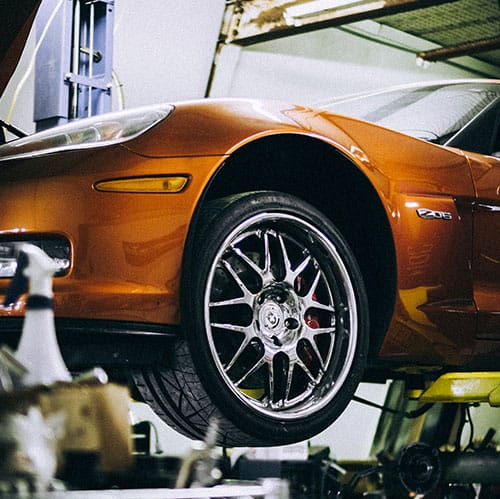Brake Hose Replacement Service at
Your Home or Office
Average Cost Of Labour for Brake Hose Replacement Service
Labour is calculated by Multiplying the length of time it will take to do the repairs by the Hourly Rate

What is Brake Hose Replacement Service?
The brake hose is another component of the braking system that ensures you slow down your car effectively. There can be up to four brake hoses in a car, each attached to a braking component. The function of the hose is to transfer the brake fluid from the master cylinder to the calipers or wheel cylinders of a car. Made of rubber, brake hoses can develop cracks and cause leaks, especially when they become hard and brittle after extended periods of use.
This is responsible for the clear fluid that flows on the wheels or under your car. Faulty brake hoses also make the brake pedal unusually easy to apply. The brake hose is another component of the braking system that ensures you slow down your car effectively. There can be up to four brake hoses in a car, each attached to a braking component.
The function of the hose is to transfer the brake fluid from the master cylinder to the calipers or wheel cylinders of a car. Made of rubber, brake hoses can develop cracks and cause leaks, especially when they become hard and brittle after extended periods of use. This is responsible for the clear fluid that flows on the wheels or under your car. Faulty brake hoses also make the brake pedal unusually easy to apply.
Note:
– Multiple brake hoses are present in a car, and so it is possible to only replace the faulty hose if others are not affected. However, if internal hose blockage occurs, replacing other hoses becomes necessary.
– The brake hydraulic system will be flushed when replacing the brake hose.

Replacing The Brake Hose(s): Getting Started
-
Inspect all brake hoses
-
Remove hoses that are faulty, cracked or causing fluid leaks
-
Bleed air and other contamination out of the system
-
Carry out brake safety inspection
-
Check for absence of fluid leaks
-
Test drive your car to ensure proper functioning of the braking system

Why Is Brake Hose Replacement Service Important For Your Car
Your braking system has to be in good condition for improved safety on the road. While other faults may not cause huge problems, ignoring maintenance checks and avoiding brake hose replacement can lead to brake failure and cause unwanted damages and accidents in the long run.
Your brake hose may be due for replacement when:
⦁ Clear fluid drips from underneath your car or wheels
⦁ Applying the brake pedal becomes unusually easy
⦁ Brakes fail to work
Recommendation:
Checking that your braking system works fine can make a big difference when on the road. If you suspect fluid leaks, seek professional help to inspect your brake hoses and make replacements if necessary. A best practice would be to inspect brake hoses every 24 months, or after every 30,000 miles covered.

How it Works

Get A Quote

Book an Appointment

Get Your Car Fixed
Google Reviews
Our Mechanics Are Available In Over 20 Locations
We’re available across the Greater Toronto Area, and are expanding quickly.
Cities We Serve
- Brake Hose Replacement in Downtown Toronto, ON
- Brake Hose Replacement in North York, ON
- Brake Hose Replacement in Mississauga, ON
- Brake Hose Replacement in Richmond Hill, ON
- Brake Hose Replacement in Ajax, ON
- Brake Hose Replacement in Pickering, ON
- Brake Hose Replacement in Markham, ON
- Brake Hose Replacement in Scarborough, ON
- Brake Hose Replacement in Etobicoke, ON
- Brake Hose Replacement in Brampton, ON
More Specific Brake Hose Replacement Estimates
- Mercedes-Benz Brake Hose Replacement
- BMW Brake Hose Replacement
- Acura Brake Hose Replacement
- Nissan Brake Hose Replacement
- Ford Brake Hose Replacement
- Mazda Brake Hose Replacement
- Hyundai Brake Hose Replacement
- Honda Brake Hose Replacement
- Toyota Brake Hose Replacement
- Volkswagen Brake Hose Replacement













